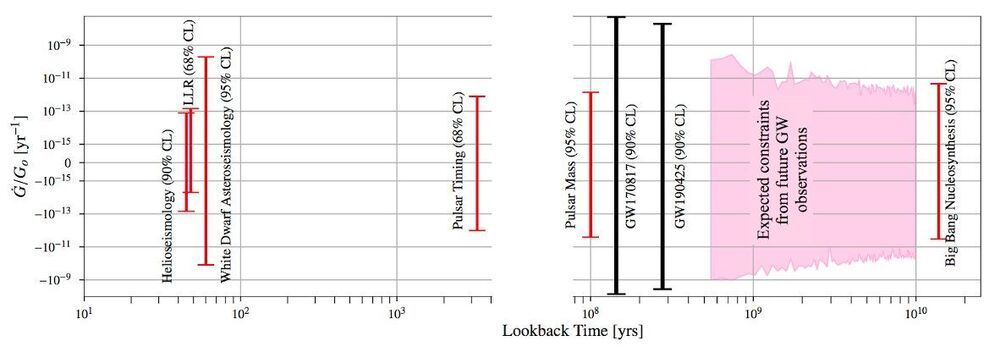Past physics theories introduced several fundamental constants, including Newton’s constant G, which quantifies the strength of the gravitational interaction between two massive objects. Combined, these fundamental constants allow physicists to describe the universe in ways that are straightforward and easier to understand.
In the past, some researchers wondered whether the value of fundamental constants changed over cosmic time. Moreover, some alternative theories of gravity (i.e., adaptations or substitutes of Einstein’s theory of general relativity), predict that the constant G varies in time.
Researchers at the International Centre for Theoretical Sciences of the Tata Institute for Fundamental Research in India recently proposed a method that can be used to place constraints on the variation of G over cosmic time. This method, outlined in a paper published in Physical Review Letters, is based on observations of merging binary neutron stars.
